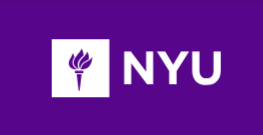Looking for the Best Journalism Schools in the World? then you are at the right article. Journalism plays a huge role in society that plenty of us often fail to understand. They shape public opinion and hold power in terms of information. However, a strong educational background is necessary to become a successful journalist.
Table of Contents
With the world constantly evolving, knowing who can be trusted and relied upon for worldly news is important. Hence, journalism is an important and highly underrated field of study.
A list of college rankings could be beneficial if students want a general idea of what schools are out there and if they fit their interests and criteria. In this blog, we have enlisted top journalism schools around the world that students can apply to if they aspire to be a journalists.
What is journalism?
Reporting, writing, editing, photographing, or disseminating objective news for print or non-print media is the profession of journalism. Its only objective is to inform the populace about global events.
Journalists or reporters are the experts in this field. Their responsibilities include gathering data from trustworthy sources, evaluating the facts, composing concise and efficient writing, and informing readers about noteworthy and captivating tales.
Why should you choose journalism as a career?
Journalists have advantages over other job paths when it comes to reporting. Here are a few compelling arguments for choosing this honorable career path.
1. Fantastic opportunities to travel the world:
Youth frequently have dreams of travelling, but neither time nor money can support this pastime. However, media professionals have this amazing opportunity thanks to journalism.
There are numerous hurdles in the reporter’s field. However, a reporter’s profile gives you an amazing opportunity to travel the world.
Journalists follow news in a variety of disciplines, such as politics and sports. You can get many highest paying jobs with a political science degree and travel the world learning about new locations. Therefore, this wonderful career might fulfil your desire to travel.
2. Getting to know remarkable individuals:
Working as a reporter gives you frequent opportunities to interact with some of the most remarkable people. A journalist is always in personal contact with well-known figures from a wide range of industries, including politics, sports, entertainment, education, and many other professions. While meeting a VIP may be a lifelong ambition, meeting VIPs is a regular part of a reporter’s work every day.
3. Establish yourself as a brand:
Reporting is a demanding profession with a fantastic opportunity to establish your reputation. For those in the media, making a big name for themselves, getting published in newspapers, or being on news channels are daily tasks.
Some students launch a personal You Tube channel and quickly amass a sizable following, even though they are not yet media professionals. The brand becomes well-known during this phase. Nevertheless, not all reporters care to be published or appear on television. The media world is waiting for you if you’re willing to step into the spotlight.
4. Fantastic growth in writing skills
Every day, a reporter must compose material for newspapers and scripts for news channels. The reporting field includes writing and editing their copies by the deadline. Writing and creating daily concerns in various styles is an easy way to significantly enhance one’s writing abilities.
In actuality, the majority of well-known novelists began their careers as news reporters. Later on, writing becomes a required aspect of the work, and eventually the work becomes a passion and a habit. Because of this, the majority of reports never struggle with a word shortage and can always be written quickly.
5. Develop your communication skills to the fullest
This course includes a portion on public speaking. Although effective public speaking seems to come naturally to certain people, it can be developed and refined at any level with the right techniques and practice. Mass communication and journalism courses are replete with these approaches and strategies.
Thus, students become skilled public speakers both professionally and in public after completing this course. The journalism and mass communication student’s public speaking skills can be used to identify him.
Roles & responsibilities of a journalist:
Most journalists have very flexible schedules and work full-time. When conducting fieldwork, they frequently travel to attend gatherings or meet with connections to obtain information.
Since news can happen at any time of day or night, journalists might be required to work very flexible schedules and extra hours to stay on top of it. They work in the office for a portion of the day as well.
Their responsibilities differ greatly depending on the kind of institution they work for, such as a newspaper, magazine, television station, or radio station. A list of common responsibilities for a journalist is as follows:
- Investigate subjects to generate stories and news.
- Conduct interviews to obtain data for a story or news item in the form of audio, video, or interview footage.
- Examine and explain the data or facts so that the audience may grasp them.
- Write news, articles, or stories for a variety of publications, including radio, TV, newspapers, and magazines.
- Check the work for correctness, syntax, and style.
- Approach the editors with a news or article idea.
- Establish trusting bonds with professionals and people who can supply leads for articles or stories.
- Keep up with the most recent tales and news.
List of 10 Best Journalism Schools in the World:
When selecting the top journalism degree program, several important considerations must be made, including reputation, accreditation, and more. Some of the top journalism schools in the world are:
1. New York University:

New York University’s Arthur L. Carter Journalism Institute provides an undergraduate degree program. This course is taught by a group of accomplished authors, journalists, and critics and its goal is to provide students with the knowledge and skills necessary to improve their career going forward.
It also demands that aspiring journalists put in a lot of study time; students at the Manhattan-based institute must do a double major in journalism.
Graduates can enroll in NYU’s online master’s program in journalism, which includes interesting classes on subjects including aural storytelling, law and ethics, and investigative journalism.
- Global ranking: 31
- Location: New York, NY
- Acceptance rate: 12.5%
2. University of Amsterdam:
The University of Amsterdam and its bachelor’s degree in communication science has one of the top positions in the world. The course delves deeply into four communication domains: political, corporate, entertainment, and persuasive.
This allows students to identify their areas of interest and tailor their degree. Students can select their electives, take a minor, or study abroad based on their interests.
Through an internship, final-year students can put the information and skills they have acquired over the three years of the program to use.
Furthermore, the University of Amsterdam offers graduates a variety of degrees related to communication and media, such as a master’s degree in communication science research and an Erasmus Mundus master’s degree in journalism, media, and globalization.
- Global Ranking: 53
- Location: Amsterdam, Netherlands
- Acceptance rate: 4%
3. University of Southern California:

Both undergraduates and graduates can enroll in journalism programs at the University of Southern California Annenberg School of Communication and Journalism.
The undergraduate program emphasizes topics like media literacy, law and ethics, and coding for storytelling, and is taught by award-winning faculty members. With more than 80 courses to choose from, students can fully customize their degree.
Additionally, the University of Southern California Annenberg School offers an intense 11-month master’s program in which alumni create and publish work under pressure.
- Global ranking: 28
- Location: Los Angeles, CA
- Acceptance rate: 12%
4. The London School of Economics and Political Sciences:
Because of its excellent, multidisciplinary teaching and research training, the Department of Media and Communications at the London School of Economics and Political and Sciences is ranked first in the UK and third in the world.
The top graduate school in the world provides short courses, Ph.D. programs, and master’s degrees lasting 12 or 24 months that focus on social science fields. Students can select from a variety of MSc programs, including Gender, Media, and Culture, Strategic Communications, and Media and Communications.
Situated in the heart of London, the department currently hosts over 200 graduate students from around the globe.
- Global ranking: 236
- Location: London, UK
- Acceptance rate: 8.9%
5. University of Texas, Austin:

In 1914, the University of Texas at Austin’s School of Journalism enrolled its first students. The institution not only began teaching the trade more than a century ago, but it also launched its radio station in 1921 and carried out the state’s first television broadcast in 1930. The university has risen so high in the global rankings for communication and media studies because of this long-standing expertise.
At the College of Communication at the University of Texas at Austin, majors in journalism are expected to take classes in subjects like writing, ethics, global cultures, and independent inquiry. Doctorate-level graduate programs in journalism and media are also available at this university.
- Global ranking: 32
- Location: Texas, USA
- Acceptance rate: 31.4%
6. Nanyang Technological University, Singapore:
Experience learning is a major component of Nanyang Technological University Singapore’s Bachelor of Communications Studies program. For instance, the four-year curriculum at the Wee Kim Wee School of Communication and Information finances extensive field excursions overseas to expose undergraduates to the reality of reporting from other countries.
A 22-week internship is another requirement for all third-year students to get practical experience and begin developing their career networks.
The school offers a master’s program that accommodates both full-time and part-time enrollment in addition to the undergraduate degree.
It is noteworthy to add that the university is ranked first in Asia for media studies and communication by several known publications.
- Global ranking: 26
- Location: Singapore
- Acceptance rate: 47%
7. Stanford University:

Journalism and Stanford University have a long history together. When Stanford University initially opened its doors in 1891, its student body didn’t take long to start its collegiate newspaper. A few years later, in 1910, the institution began offering journalism courses.
In the present day, gathering and analyzing data is a major component of the institution’s journalism degree to create and disseminate outstanding tales. Undergraduates at SU study spreadsheets, R, Python, and other programming languages, and how to utilize them to improve their storytelling over their four years there. The graduate program in journalism also emphasizes data.
Consequently, SU has helped its graduates advance in newsrooms and institutions around the country, including the New York Times, Google News, and The Wall Street Journal.
- Global ranking: 3
- Location: California, USA
- Acceptance rate: 3.7%
8. University of Pennsylvania:
With its origins in 1893, the University of Pennsylvania offers one of the oldest communication majors in the US. The institution committed to teaching communication skills as well as to developing and progressing in the area in 1959.
Communication majors at the University of Pennsylvania Annenberg School for Communication are taught to use both qualitative and quantitative research methods, giving them a competitive advantage in the field. Interviews, surveys, experiments, and data analysis are all part of the program.
Graduates who want to continue their education at UPenn may apply to the five-year Ph.D. program in communications, even though the school does not currently offer a master’s degree program.
- Global ranking: 12
- Location: Philadelphia, USA
- Acceptance rate: 6.5%
9. University of Wisconsin-Madison:
The University of Wisconsin Madison offers an undergraduate program in reporting and multimedia journalism that combines classroom instruction with practical experience to prepare students for the workforce of the future.
The long list of great writers and journalists that UW-Madison has produced since adding journalism to its curriculum in 1905 is proof of this.
Graduates are prepared to find employment in a variety of sectors, including publishing, film, and investigative journalism, because of the wide range of courses available.
The UW-Madison School of Journalism and Mass Communication states that 97% of its graduates find full-time jobs in the field of their choosing, demonstrating the efficacy of this method.
- Global ranking: 35
- Location: Wisconsin, USA
- Acceptance rate: 49.1%
10. Michigan State University:

Michigan State University takes pleasure in how much its courses push students to think creatively and imaginatively, emphasizing the value of these qualities in journalism.
Michigan State University has been teaching journalism for a century, and it has its student newspaper, so it has a strong foundation in preparing its students for careers in the field. Undergraduates studying journalism have the option to minor in animation and comics storytelling, documentary production, or entrepreneurship.
The university also grants a master’s degree in journalism with two concentrations: international journalism and scientific and environmental journalism.
- Global ranking: 60
- Location: Michigan, USA
- Acceptance rate: 88%
Frequently Asked Questions:
1. Which country has the best journalism schools?
The United States has a lot of renowned journalism schools in the world. Some of them are Columbia University and Northwestern University.
2. What school is known to have the best journalism program?
The University of Wisconsin Madison is a great choice if you are looking to pursue a degree in the field of journalism. The University of Wisconsin-Madison is a public university and is considered to be one of the best journalism schools in the world.
3. Which country has scope in journalism?
The QS Ranking 2024 shows that the USA is home to some of the best journalism schools in the world. International students looking for a top-notch education in this discipline frequently choose to study there.
4. Where is it best to study journalism?
Various good colleges provide journalism, some of them are the University of Southern California, the University of Amsterdam, University of Texas at Austin among many others.
5. Which country pays the highest salary to journalists?
Journalists in Canada are known to get paid a huge amount among other countries in the world.
Conclusion:
Lastly, bear in mind that practically any institution can provide a journalism curriculum; it just doesn’t have to be in a top college. The most crucial thing is to look for chances to expand your professional experience. There are many more factors to take into account when selecting an institution, even if looking at university rankings is an excellent place to start.
Several factors, like housing expenses, campus life, accessibility, and time spent away from home, can affect how happy you are going to be as a student. It is therefore advised that you give yourself plenty of time for this procedure, keeping track of the many application deadlines, weighing the advantages and disadvantages of each institution, and, if feasible, visiting college campuses.












Add Comment